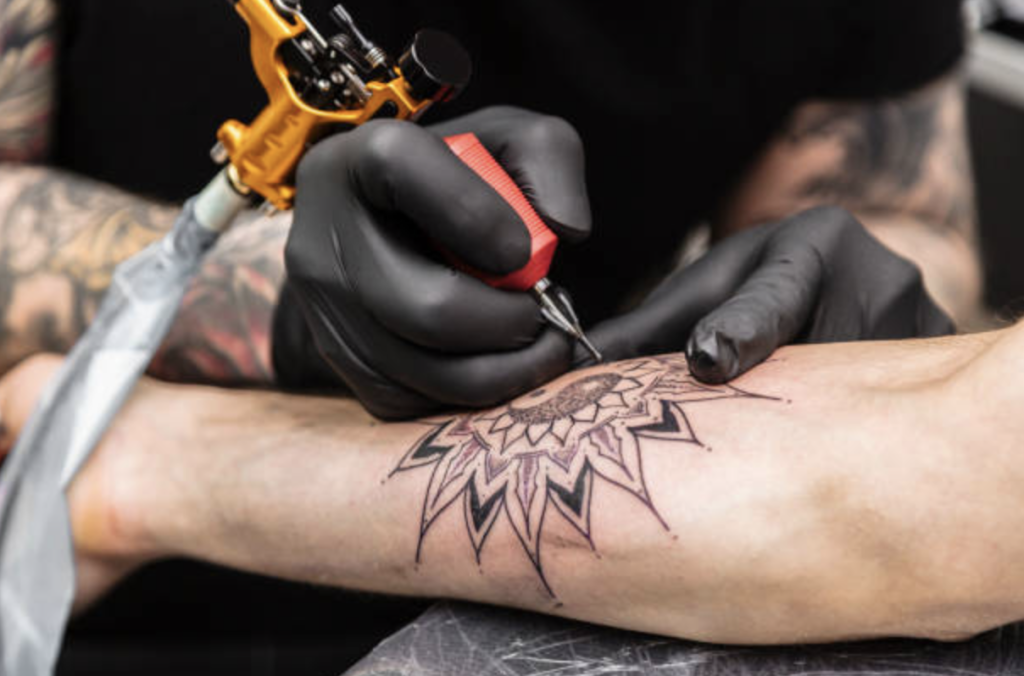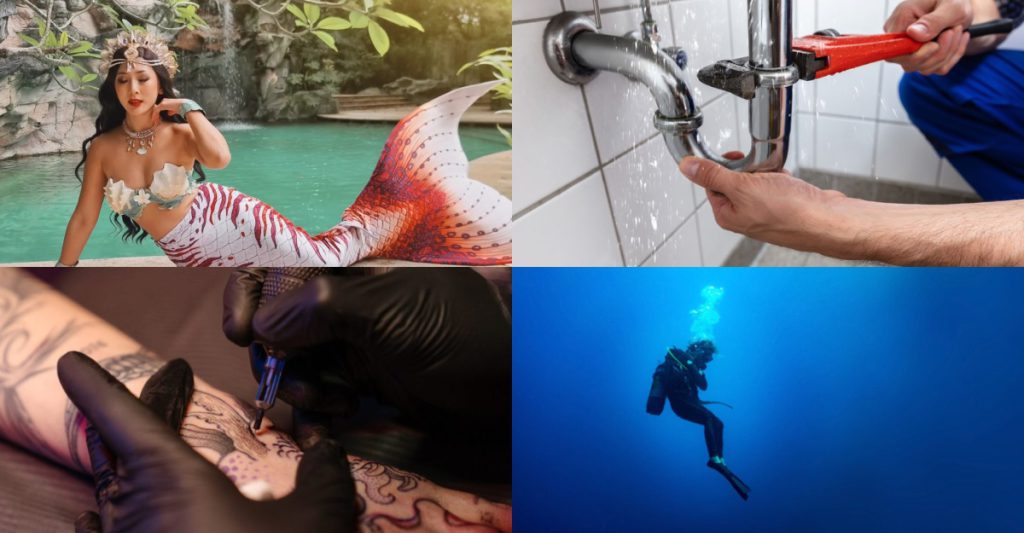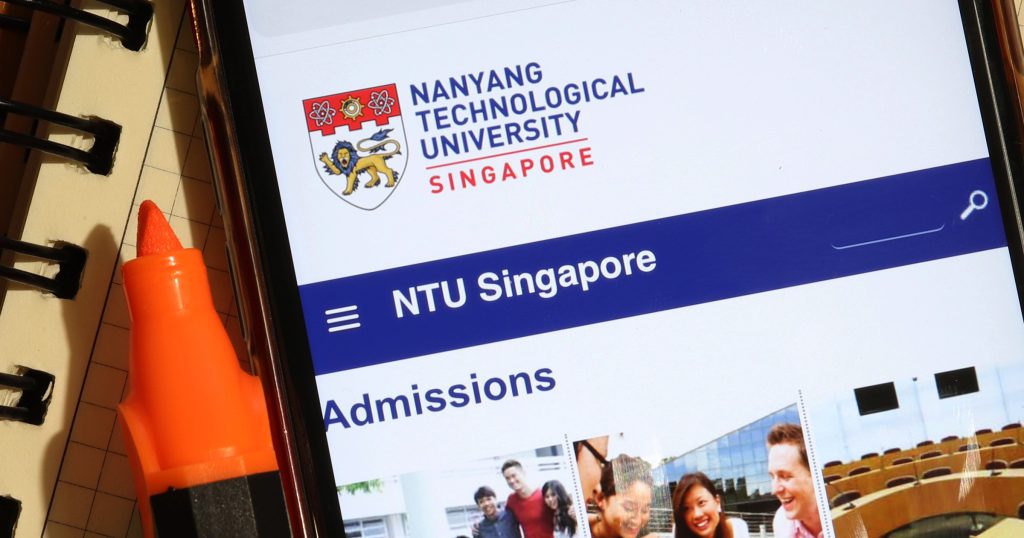What does success really mean in the Singaporean context? Is it solely limited to the relentless pursuit of climbing the corporate ladder and accumulating wealth?
This narrow definition of “success” has often overshadowed alternative avenues to fulfilment.
There has been a courageous few, however, who have dared to deviate from the conventional path, opting instead to follow their passions and embrace unconventional careers. Surprisingly, these individuals have reaped remarkable rewards, not only in terms of personal satisfaction but also in financial prosperity.
These unconventional vocations have carved a niche space within Singapore’s dynamic landscape, challenging traditional norms and providing opportunities for both personal and professional growth.
If you’re finding yourself yearning for a different kind of career trajectory — a path less travelled by Singaporeans — here are 10 unique careers you can pursue in Singapore.
1. Private investigator

Private investigators are not just confined to the realms of movies and television shows. In fact, there are professionals who have dedicated their careers to this field in real life, even in Singapore.
The average salary for a private investigator ranges from S$5,416 to S$6,666 per month, depending on the number of years of experience and the quality of the investigation. This is excluding bonuses that can amount up to S$2,700 per year, depending on the number of cases solved by the investigator.
To become a private investigator, you’ll have to be at least 16 years old, and obtain a Private Investigators License from the Singapore Police Force. Without a valid license, you may be fined up to S$10,000, and/or jailed for up to two years.
As a private investigator, you would be responsible for conducting investigations into various cases, including cheating spouses or partners; background checks; fraud investigations; locating missing persons; surveillance; as well as intellectual property investigations, among others.
In addition, they can also be paid by insurance companies and lawyers to investigate fraud cases or gather evidence for court cases.
2. Private tutor

While private tutors do not necessarily have to be trained by the National Institute of Education, they earn between S$35 to S$50 per hour for primary and secondary level subjects, and between S$55 to S$70 per hour for JC, IB diploma, polytechnic and university level subjects.
According to Smile Tutor, these tutors can easily rake in at least S$5,000 every month, assuming that they take up 15 jobs per week, charging S$50 per hour on average.
In some instances, these tutors have even managed to rake in over S$1 million annually, including economics tutor Anthony Fok. He’s not the only exception though — in 2016, it was reported that there are at least 10 other tutors making similar amounts.
These salaries are not surprising, considering how competitive the city-state is when it comes to education. In fact, many households believe that tuition is a necessity, spending a whopping S$1.4 billion on tuition between 2018 and 2019.
What’s more is that 40 per cent of pre-schoolers are already enrolled in private tuitions, attending an average of two hours of private tuition per week. 80 per cent of primary school students, on the other hand, attend at least three hours of tuition per week.
The tuition industry shows no signs of slowing down and it may be a good choice for those looking for a lucrative career path.
3. Commercial diver

Commercial diving is a profession that involves working underwater for various industrial and commercial purposes. These skilled professionals undertake a range of tasks such as underwater welding, construction, maintenance, inspections, and salvage operations.
An entry level commercial diver rakes in about S$5,511 monthly, while a senior level commercial diver earns an average of S$9,637 per month.
To get started, you must be at least 18 years old and possess a certificate of competency as a commercial diver, or equivalent certifications.
However, as the livelihoods of commercial divers is directly tied to the marine environment, this career path comes with inherent risks. From uncertain weather conditions, to crocodile attacks and strong underwater current, commercial divers need to overcome these challenges in order to get a pay check.
According to CNA, there has been at least six commercial diving-related deaths in Singapore between 2010 and 2019.
Despite this statistic, many tend to stick to the job. As of 2019, Singapore has about 200 inshore commercial divers, who are certified to dive in Singapore’s waters.
4. Crane operators

Crane operators are responsible for operating cranes and hoists in various work environments including construction sites and shipyards, where heavy items need to be lifted. Their duties include transporting the crane to construction sites, overseeing loading and unloading, as well as conducting inspections.
Crane operators typically earn above-average salaries. In fact, relatively new crane operators can take home S$4,000 a month including overtime pay and allowances, while more experienced operators fetch S$6,000 to S$7,000 a month. In a good month, some have reportedly earned up to S$10,000.
To become a crane operator, you would require expertise in occupational health and safety standards, the ability to create compliant lift plans, as well as a certification from a recognised training organisation.
In addition to these qualifications, these professionals also need to posses mechanical competence, including the ability to operate and adjust cranes with precision, as well as a working knowledge of the machinery to ensure its safety and perform minor repairs.
Patience, concentration, and attention to detail are also crucial, as operators must remain focused during long shifts and carefully secure loads.
But it’s important to note that this career path comes with heightened physical hazards, including falling from heights and electrocution. In 2019, there were eight dangerous occurrence cases, as well as one fatality resulting from the collapse and failure of crane structures and equipment.
5. Tattoo artist

Have a passion for art? You can turn that passion into a lucrative endeavour by becoming a tattoo artist, with the potential for a substantial income averaging up to S$3,400 per month.
According to Salary Expert, those without experience start off at a much lower salary at S$2,205 per month. However, as tattoo artists gain more experience and develop their skills, they tend to become more sought after by clients and will be able to command higher rates for their work.
In fact, one of the world’s most famous tattoo artist, Don Ed Hardy, used to charge US$1,500 per hour for his work, that is, before he retired at 70.
To become a tattoo artist, you would typically have to land an apprenticeship in a tattoo shop, and work your way up. To score an apprenticeship, you should have a strong portfolio ready, comprising your original works.
That said, an apprenticeship can be very time-consuming — it can take months, or even years, for you to complete it.
An alternative route to this is to take up tattoo lessons. In Singapore, renowned tattoo parlours such as Shadow Show Tattoo provide comprehensive courses designed to teach aspiring individuals the intricacies of the craft.
These courses come with a price tag of approximately S$6,000, and opportunities will be provided to students after the course to work at the studio.
6. Funeral director

Despite being a role that is often perceived with societal stigma, a funeral director can actually be a highly lucrative career choice.
According to TFS Funeral Florist, the average monthly salary of morticians, undertakers, and funeral directors is about S$4,375. The highest 10 percentile earn more than S$7,400, while the lowest 10 percentile earn less than S$2,500.
Meanwhile, funeral service managers make an average of S$6,600 monthly. Among them, the highest 10 percentile earn more than S$12,500, while the lowest 10 percentile earn less than S$3,500.
That said, considering the vital role funeral directors play in helping families navigate the difficult process of saying goodbye to their loved ones makes the nature of the job quite demanding.
Their responsibilities include coordinating complex funeral arrangements, providing compassionate emotional support, and ensuring that every service is conducted with utmost respect and dignity.
Given the importance of their role, funeral directors often work full-time hours and are frequently on-call. Long workdays, including weekends and evenings, are typical in their routine. Despite these demands, the financial compensation in this profession can make it a worthwhile career choice for those who are willing to embrace its challenges.
7. Garbage collector

Perceptions surrounding waste collectors often carry negative connotations — from misconceptions about waste collectors being engaged in a dirty job, to assumptions about their level of education or skills.
However, the reality is far from that. Waste collectors play an integral part in the upkeep of Singapore, and their compensation reflects the significance of their contributions.
In a local podcast, TheCommonFolks, ex-garbage collector Danny shared that basic waste attendants earn between S$2,600 and S$2,800 — and this is without factoring in allowances and overtime (OT) pay. With allowance and OT, they are paid up to S$3,400 to S$3,500.
Meanwhile, garbage truck drivers can earn an upwards of S$5,000, sometimes reaching between S$8,000 and S$10,000.
However, online job portals indicate that the pay for basic waste attendants range between S$1,800 and S$3,500, while the average salary for garbage truck drivers is between S$2,500 and S$4,500.
That said, by 2028, an entry-level waste management worker can expect to draw a minimum gross salary of S$3,260 a month due to the Ministry of Manpower (MOM)’s implementation of the progressive wage model. From 2024, eligible workers in the sector can also expect to receive mandatory annual bonuses.
8. Licensed electrical workers

According to Zames Chew, the co-founder of electrical services company Repairs.sg, there are generally three tiers of licensing for electrical workers in Singapore. Each tier qualifies an individual to work on different amounts of power in an electrical circuit.
For Repairs.sg, the company specifically requires electrical workers from the lowest power tier, which qualifies them to supervise all of the residential and smaller-scale electrical services the company offers.
“Depending on their skill set and responsibilities, our company would offer a full-time licensed electrician on this tier a salary ranging between $3,500 and $5,500,” said Zames.
A quick search done with MOM’s salary calculation tool, however, unveiled that the average monthly salary for electrician jobs in Singapore ranges from $2,300 to $3,400.
But for those of a higher power tier that require niche skillsets, salaries can go up to S$10,000 to S$12,000 per month, according to a user on Reddit who has worked on some construction projects.
“I guess [their] skillset is very niche, so last I know of, they earn [between] S$10,000 and S$12,000 a month.”
9. Licensed plumbers

Plumbing, much like electrical works, may not be traditionally regarded as glamorous, but it can provide a lucrative income.
According to the youngest member of the Singapore Plumbing Society, Gary Tan, licensed plumbers in Singapore can earn an average monthly income of S$6,000 to S$8,000 per month. In exceptional cases, these plumbers have even achieved monthly earnings of up to S$12,000.
Meanwhile, for Repairs.sg, the company offers a starting salary of approximately S$3,500 to newly licensed plumbers with limited experience. “I have met plumbers in engineering companies whose salaries are in excess of S$8,000,” said Zames, the co-founder of Repairs.sg.
These licensed plumbers often find themselves engaged in tasks that involve fewer undesirable aspects of the job, such as handling “dirty work”, as their primary responsibilities revolve around inspections. Additionally, licensed plumbers enjoy greater opportunities for career advancement, Gary highlights.
However, the path to obtaining a license is not an easy one. Plumbers seeking licensure must have a minimum of two years of experience and undergo comprehensive training lasting six to nine months, spread across three different organisations.
According to the President of the Plumbing Society, Dickrose Masalamani, the assessment for these courses includes written tests and oral interviews. These evaluations can present challenges for local plumbers, as there have been instances where they faced difficulties and failed the interviews multiple times.
10. Mermaid

Did you know that you can turn your childhood dreams of being a Disney Princess into a fulfilling profession by becoming a professional mermaid — just like Cara Nicole Neo (widely known as Syrena), Singapore’s first professional mermaid?
Syrena’s career as a professional mermaid began as a simple hobby when she discovered mermaid tails while shopping for Halloween in 2011.
Since then, she has transformed her passion into a thriving career and collaborates with hotels, malls, and popular tourist attractions in Singapore. She also performs at kids’ parties as well as corporate events.
These live performances take anywhere from one to three hours, and clients can expect to pay her an upwards of S$500 per hour.
That said, the job scope is far from easy. Prior to her shows, Syrena has to prepare herself with mental exercises and breathing exercises to lower her heart rate to ensure that her body is oxygen-efficient and performance-ready.
During her performances, she usually executes 20 to 40 dives and holds her breath anywhere from 50 seconds to a minute before going back up for air.
Beyond her performances, Syrena extends her expertise by running a mermaid school, which provides an opportunity for aspiring mermaids to learn various techniques and tricks. If you’ve ever dreamt of becoming a mermaid yourself, Syrena’s school offers a gateway to fulfilling your ambitions.
Featured Image Credit: Syrena/ Freepik/ Adobe Stock/ Getty










